
Menopause campaigner Mariella Frostrup: ‘I look forward to a future where women gradually stop feeling so ashamed’
Mariella Frostrup said she looks forward to a future where women “stop feeling so ashamed” of their bodies. The broadcaster, author and former Observer agony aunt, who has been known for her work as a menopause campaigner over recent years, also said “the world is not changing fast enough” when it comes to awareness and support for women’s health experiences. “[There has been] centuries of misinformation and misunderstanding that’s gone on around menopause. You have to look to history to see where we’ve ended up – and then in a more optimistic vein, look forward to a future where women gradually stop feeling so ashamed,” Frostrup, 60, told the PA news agency. “I mean, everything to do with women’s bodies has been a source of shame. I remember as a teenager, I was hiding my Tampax underneath cereal packets when I went to the shops to buy them, because I was so ashamed of the fact I was having a period. “You look at young people today, and I just love it when young women will announce to a roomful of people, ‘Oh, I’m on my period’. That is a great indication of the sort of liberation we need to experience around our bodies.” Frostrup, who wrote an advice column for the Observer for a decade and joined Times Radio as a presenter in 2020, co-authored the 2021 book Cracking The Menopause and is chair of the Menopause Mandate collective, whose aim is to ‘revolutionise’ the support and advice women receive through their midlife health challenges and beyond. She has now teamed up with Always Discreet on a campaign highlighting bladder leakage. Despite affecting around half of women, many (50%) are unaware this can be a common symptom of menopause, according to a survey by the brand. Of those who do experience bladder leaks during menopause, the poll (of 1,200 women) also found more than 50% are not sure they would want to discuss it with anyone, with some (19%) citing embarrassment as the reason. Frostrup, who has a teenage son and daughter with husband, lawyer Jason McCue, is keen to highlight, however, that bladder leakage is often one of the menopause symptoms women can effectively self-manage – through pelvic floor exercise. These are simple exercises that involve squeezing the muscles around the pelvis, bladder and vaginal area. The campaign sees Frostrup and TV medic Dr Philippa Kaye encouraging women to ‘Squeeze the Day’ every day, with daily pelvic floor exercises. “It’s something a lot of women live with, a lot of women don’t talk about, and a lot of women feel ashamed about – but it is actually something you can tackle, when there’s so many other symptoms women struggle to obtain treatment for,” said Frostrup. “Here’s something you can personally take agency of, and do your pelvic floor exercises. “My mum, weirdly – and I have no idea why, because I was a teenager in the Seventies – was very vocal about the need to do pelvic floor exercises. I think probably back then, it was more to do with childbirth and making that a bit easier in the future, but I was lucky in a way, as it’s something I’ve had an understanding about – although I’m still practicing how to do them without raising my eyebrows,” she added, laughing. “With so many of these things, you need a bit of levity as well. Obviously, [bladder leakage] is not the most pleasant thing – but it’s not the end of the world, and you can prevent it and actually make a difference if you’re already suffering.” Frostrup is certain that lack of awareness and support around menopause has made it “so much more difficult” for those affected, and that there’s still work to be done. “I think for an awful long time, our ignorance around the subject has made the transition through perimenopause and menopause so much more difficult,” she said. “The discovery that one in two women are going to suffer from bladder leaks – that’s an astounding proportion, particularly when you look at it as just one of 50 symptoms around menopause that women are unaware of. “I think there’s an issue in that menopause is now presented as something everybody knows about – ‘yada, yada, why is it still being talked about? You’ve got everything you wanted, now get on with it’ – and I think that’s absolutely not the case,” Frostrup continued. “Based on the thousands of women who’ve written to us at Menopause Mandate and talked to us about their symptoms, the treatment, the support they’ve been able to access, their experiences in the workplace and so on. What’s clear is that the world is not changing fast enough for these disenfranchised women. “We don’t want to rest on our laurels and just think, ‘Oh, everything’s fine now’. We’re still at base level – we’ve still got Everest to climb, when it comes to just recognition and support for women.” Mariella Frostrup has partnered with Always Discreet on their ‘Squeeze the Day, Every Day’ missions. Find out more about pelvic floor exercises via the Always Discreet Menopause Hub. (Speak to your GP if you are concerned about bladder leakage).
2023-10-18 16:18
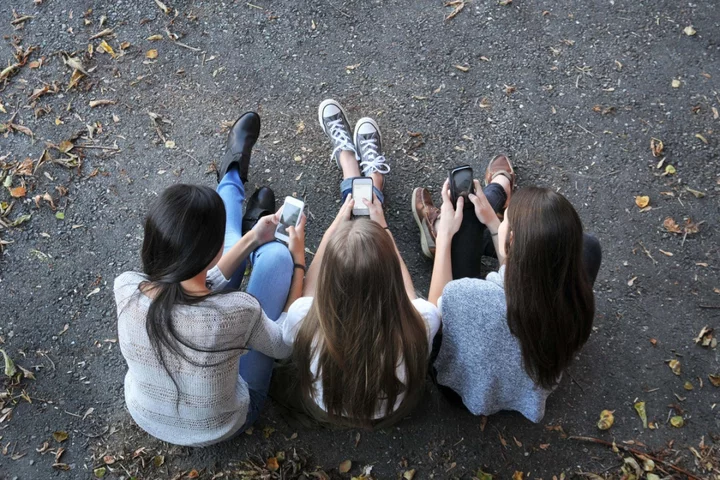
More girls miss school and college due to their periods than colds, survey finds
Girls miss more school or college days due to periods than any other reason – including colds, mental health or truancy, according to a new report. Periods cause girls to be absent from school or college for three days a term on average, compared with colds and flu (2.6 days), mental health (1.9 days) and truancy (1.2 days), the data released by washroom provider phs Group has revealed. This equates to 54 lost education days over the course of their teen years, the equivalent of 11 academic weeks. The findings form part of phs Group’s Period Equality: Breaking the Cycle report, now in its third year, for which Censuswide polled 1,262 girls aged 13-18 years across the UK. The majority (82%) cited cramps as the main reason for this, while almost one in five (19%) said they stay away from lessons because they’re embarrassed about being on their period, and one in 12 (8%) said it’s because no period products were available to them. This is despite the introduction of period equality measures in recent years, designed to improve access to free period products in education settings. “It’s important to recognise that huge advances have been made in giving girls access to free period products in schools across the UK. What we must do now is close the gap between providing schools with all the products they need and getting them into the hands of any girls that need them, for whatever reason,” said Kelly Greenaway, period equality lead at phs Group. “We know from our own data providing schools with products, that they have more than enough for their girls, so we need to tackle the misconceptions around free access to products in washrooms, and the stigma and shame that goes hand-in-hand with failing to have open conversations about menstruation.” Since the launch of the Government’s Period Product Scheme in January 2020, which provides free period products to education settings in England, via phs Group, 99% of secondary schools and 94% of post-16 organisations have ordered products through the scheme. However, the report published today highlights how periods remain a barrier to education for many girls – with the number of girls missing school due to their periods almost the same for the 2023 findings (54%) as the findings in 2019 (52%), before free sanitary product schemes were introduced. Despite the roll-out of such schemes, over half (52%) of the students surveyed said they did not find period products freely available in their school and college settings, while one in seven (14%) said they did not know if they were available. To help tackle the issue and raise awareness, phs Group is launching a new period equality podcast – called The Blobcast: Free The Period – hosted by menstrual wellbeing and confidence educator Kasey Robinson. Robinson said: “I know too well about the barriers facing so many of us when it comes to our menstrual health. It’s simply not enough to blame absenteeism figures on access to products alone. “On the ground, the story is clear: we aren’t being educated, supported and informed enough about periods. Menstruation is still a taboo subject, and our experience is a secret to keep to ourselves and something we feel forced to hide. In education settings, this is leading to more and more girls staying away from school. “Without workshops, learning resources and the support for and from teachers and caregivers, this issue will stay the same, or get worse,” Robinson added. “It should not be a revolutionary act to teach people about periods, it’s a right. We need to break the cycle of shame and encourage open and honest conversations about periods – exactly what The Blobcast is seeking to do.” The Blobcast: Free The Period launches on all free streaming platforms on October 18. More information can be found at www.phs.co.uk/TheBlobcast.
2023-10-18 13:25

Sam Neill shares blood cancer update as he reveals he’s ‘not remotely afraid’ of death
Sam Neill has been warned by doctors that his cancer treatment drug will stop working at some point, the actor said as he provided a health update months after revealing that he had been diagnosed with stage-three blood cancer. Earlier this year, the Jurassic Park star released his memoir Did I Ever Tell You This?, in which he revealed that he was being treated for angioimmunoblastic T-cell lymphoma. At the time, Neill shared that he had originally undergone chemotherapy, but that the cancer had soon stopped responding. He then went onto an experimental anti-cancer drug. In a new interview, Neill, 76, shared that he’d upped his dosage of the “grim and depressing” drug from once a month to every two weeks. However, he said, he has now been in remission for 12 months. Neill told ABC’s Australian Story that while he would be on the treatment indefinitely, doctors have told him that, at some point, it will stop working. “I’m prepared for that,” he said, adding that he is “not remotely afraid” of death. The Piano star said that he had first found lumps in his neck in early 2022, and soon learnt that he had cancer. “I started to look at my life and realise how immensely grateful I am for so much of it,” Neill said. “I started to think I better write some of this down because I’m not sure how long I have to live. I was running against the clock." First sharing his cancer diagnosis in March, the New Zealand actor – who is best known for playing palaeontologist Dr Alan Grant in the Jurassic Park franchise – said that dying would “annoy” him. “I’d really like another decade or two, you know?” he said. “We’ve built all these lovely terraces, we’ve got these olive trees and cypresses, and I want to be around to see it all mature. And I’ve got my lovely little grandchildren. I want to see them get big. But as for the dying? I couldn’t care less.” In an interview with The Independent earlier this year, however, Neill threw out the idea of retiring. “The idea of giving up my day job? Intolerable!” he said. “I love acting. It’s really good for me to keep walking onto new sets with young actors and all that stimulation. New words, new ideas, there’s nothing like it. I never want to give that up. The idea of retirement, of having to play golf, fills me with untold dread,” he said. Read More Sam Neill says Robin Williams was ‘the loneliest man on a lonely planet’ Amy Dowden delights Strictly Come Dancing fans in surprise appearance amid breast cancer treatment Richard E Grant says there are friends he’ll ‘never speak to again’ after death of wife Joan Sam Neill says he’s ‘not remotely afraid’ of death as he shares blood cancer update Pregnant Jana Kramer shares details of her recent hospitalisation 4 black women on their experiences with breast cancer
2023-10-17 13:24

Ed Gamble used to weigh himself every day amid ‘obsessive’ weight loss: ‘I didn’t have a social life’
Comedian Ed Gamble has opened up about battling his “obsessive” tendencies and the “evil” bathroom scales while discussing losing weight. The stand-up comic and panel show regular lost seven stone in weight in his early twenties, and is now releasing a memoir about his relationship with food titled Glutton: The Multi-Course Life of a Very Greedy Boy. In a new interview with The Times, the comic – who hosts comedy food podcast Off Menu with fellow comedian James Acaster – opened up about the ways losing weight changed his life. “After losing weight, I got more obsessed with my image. You do feel different, wondering, ‘Oh, maybe I’m attractive now.’” Gamble, 37, said that he had developed a fixation on fitness after losing weight, and currently took part in the “cult” of CrossFit. However, the Great British Menu judge – who has Type 1 diabetes – had to watch his more obsessive tendencies when he first began to lose weight after he dropped to 12 stone. At this point, Gamble was weighing himself every day. “That’s not a weight I operate well at,” he recalled. “It means I don’t have a social life; I’m always exercising and thinking about what I eat. “At that point, my mum said, ‘You don’t need to keep doing this. Build in having fun again.’” Gamble said that while had weighing scales in his bathroom at the time, he saw them as “evil”. “You’ve put on 2lb. So what? Stop looking. Go with how you feel,” he said. Growing up as a “posh little boy”, Gamble often used food to prove that he was “like the grown-ups”. Speaking to The Independent in August, Ed Gamble recalled first eating poached salmon when he was three or four years old. “I think it would be easy to serve child me in a restaurant,” he said. “I think you’d think I was weird, possibly, because I’d be sat bold upright at the table, sort of like a mini [food critic] Jay Rayner, just demanding everything.” Glutton: The Multi-Course Life of a Very Greedy Boy is released on 26 October. For anyone struggling with the issues raised in this article, eating disorder charity Beat’s helpline is available 365 days a year on 0808 801 0677. NCFED offers information, resources and counselling for those suffering from eating disorders, as well as their support networks. Visit eating-disorders.org.uk or call 0845 838 2040 Read More Should plus-size travellers be asked to take weight-loss drugs for flights? It’s plane crazy Paloma Faith on her heartbreak and being a single mum: ‘Our relationship ended because we had those children – it was worth it’ Weight-loss jabs linked to ‘severe’ stomach problems – study Some people are born with a ‘talent for happiness’ – so what’s their secret? Presenter Louise Minchin: Menopause conversations are no longer taboo – but we need to keep going Israel-Hamas conflict: How to talk to teenagers about distressing news stories
2023-10-14 19:28

Online apps recommended to manage lower back pain
Online apps have been recommended to help people with lower back pain in a bid to tackle NHS waiting lists. Seven platforms have been given the green light for people over the age of 16 to manage their condition in early value assessment guidance published by the National Institute for Health and Care Excellence (Nice). According to the NHS Long Term Plan, lower back pain is the biggest cause of disability and is thought to account for about 30% of GP consultations every year. England affected by long-term back pain" data-source="UKHSA"> UK Health Security Agency (UKHSA) figures show there are 9.11 million people living with long-term back pain in England. Nice said it hopes its guidance will work towards reducing inequalities in care for musculoskeletal conditions. It also hopes the move could reduce NHS waiting lists, as well as bringing down the number for people using medication or waiting for GP or physiotherapy appointments. On Thursday, it emerged that a record 7.75 million people in England were waiting to start NHS treatment at the end of August. The digital platforms our committee has recommended could provide the NHS with extra capacity to get those effected off waiting lists, which vary in length across the country, and into treatment Mark Chapman, Nice Mark Chapman, interim director of medical technology and digital evaluation at Nice, said: “More than two million people suffer from low back pain each year and there are considerable pressures on NHS services to provide the treatment and care to those needing support with this debilitating condition. “The digital platforms our committee has recommended could provide the NHS with extra capacity to get those effected off waiting lists, which vary in length across the country, and into treatment. “We believe these technologies have the potential to offer value for money for the taxpayer, while offering people with low back pain quicker access to get the care they need at a time and place of their choosing.” The platforms recommended for NHS use are ACT for PAIN, getUBetter, Hinge Health, Kaia, Pathway through Pain, selfBACK and SupportBack. Some of the apps are designed for people with new back pain, while others are aimed at those with chronic back pain. These apps are yet another example of how technology can be used help patients get the care they need, when they need it Health minister Will Quince The platforms offer access to multi-disciplinary teams, along with guided exercise videos, and reminder functions for patients to do tasks such as filling in questionnaires. Health minister Will Quince added: “These apps are yet another example of how technology can be used help patients get the care they need, when they need it. “They offer a range of services which will allow patients to manage lower back pain from the comfort of their homes by improving access to musculoskeletal services – which will form a key part of our Major Conditions Strategy. “This will help to reduce pressures on the NHS and can help to cut waiting lists – one of the government’s top priorities – and will help people to live happier, healthier lives.” The technologies recommended in the guidance can be used once they have appropriate regulatory approval and meet the standards within NHS England’s Digital Technology Assessment Criteria, Nice said. The watchdog also recommends lower back pain self-management, exercise, manual therapies, psychological therapy, and combined physical and psychological programmes as well as return to work programmes. Denice Logan Rose, executive director of BackCare (National Back Pain Association), said: “Very many people living with non-specific low back pain feel that they have nowhere to turn for help, they are desperate and are at a complete loss about what they can do to help themselves. “Apps form a significant part of the technology-driven world we live in and if they can be used to help people living with back pain to lead more pain-free and active lives, this is a huge step forward.” Read More From choppy bobs to fox red, 5 celebrity-approved hair trends for autumn The UK’s first dedicated male breast cancer organisation has launched – here’s why it matters How Taylor Swift’s style has evolved over the years Model Emily Ratajkowski unveils latest fashion campaign 10 ways to cosy-up your home for an autumnal vibe 5 must-have bag trends for autumn
2023-10-13 16:25
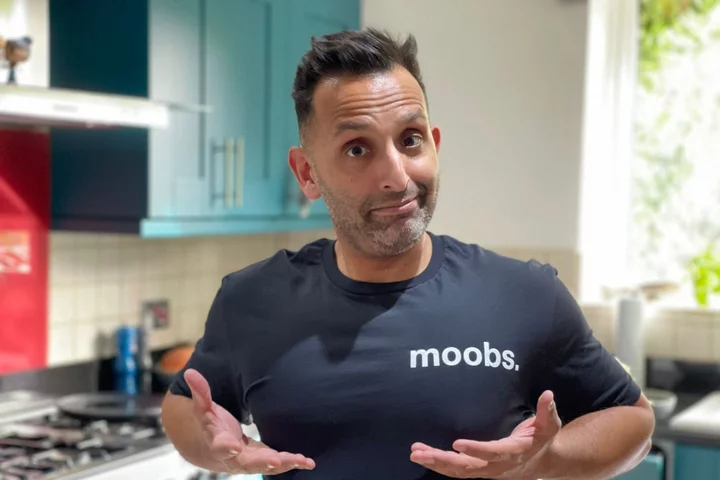
The UK’s first dedicated male breast cancer organisation has launched – here’s why it matters
Lorraine regular Dr Amir Khan and This Morning’s Dr Zoe Williams have joined forces to support the launch of the UK’s first ever dedicated male breast cancer organisation. Called Moobs, the organisation was founded by James Richards, 37, who is currently undergoing treatment for the disease after being diagnosed in February, aged 36. Moobs’ main mission is to raise awareness of breast cancer amongst men, and provide a helpful resource for men who get diagnosed. The organisation also runs a monthly support group via Zoom, to ‘help reduce the isolation’ for men affected. “As a male, I’ve always been aware of the risks of prostate and testicular cancer, but I had no idea men were able to get breast cancer – you just don’t hear of it,” said Richards. “In the days following my diagnosis, I was surprised by the lack of tailored support and information readily available around the disease, and much of my treatment plan was based on what was offered to women. “There are differences, but with so few cases and a lack of funding for male breast cancer, we are in danger of isolating those that need support the most.” Around 55,000 women are diagnosed with breast cancer each year, making it the most common form of cancer in the UK. There are also around 400 new diagnoses a year in men – yet awareness of the condition in males is much lower. It’s believed this is contributing to men being less likely to see their doctor when early signs arise, and a 2019 US study found male breast cancer patients have a 19% higher mortality rate than women. As with women, male breast cancer tends to mostly affect older men, aged 60-70. However, it can potentially occur in younger men too, so being aware of the symptoms is important for everyone. Checking for signs When it comes to checking for warning signs, Dr Amir Khan said it’s “very similar” for both men and women. “I always say to women, be ‘breast aware’ – so that’s knowing what’s normal for you, and then being aware of any changes and getting them checked, and it’s exactly the same for men,” Khan told the PA news agency. “[Often] men don’t know that they’ve got breast tissue – but all men have breast tissue, and that means they’re at risk of getting breast cancer. It is a much lower risk than in women, but the risk is still there. “So what I would say to men is, just as often as you check your balls for any lumps, you should be checking your breasts as well. Do them both – balls and breasts – in the shower, once a month.” Khan explained that the “majority of the breast tissue in men is located around the nipple area -so that is the part you need to be hyper vigilant about” when checking for changes. “But saying that, you should be checking the whole of your chest area, right up to the collarbone and under your arm. “As well as that, nipple changes are really important too – so if one nipple has suddenly changed, if it’s pointing inward instead of outward, or if there’s any skin dimpling, any new unexplained rashes around the breast area, or even unexplained persistent breast pain or chest pain, get that checked out.” See your GP While these things don’t mean you definitely have cancer, it’s always best to get things checked with your GP quickly. “We will be able to either reassure you, or make that onward referral. And it is incredibly rare – we’re talking 400 or so men each year diagnosed with breast cancer,” Khan added. “But it’s always better to be safe than sorry, and the longer you leave it [if it is cancer], sadly, the worse the outcome is likely to be. So as soon as you pick anything up, go and see someone.” For more information, visit moobs.uk Read More How Taylor Swift’s style has evolved over the years Model Emily Ratajkowski unveils latest fashion campaign 10 ways to cosy-up your home for an autumnal vibe 5 must-have bag trends for autumn Dawn O’Porter: ‘I fantasise about the other side of menopause’ Everything you need to know about bedbugs as increase in numbers is predicted
2023-10-13 13:29
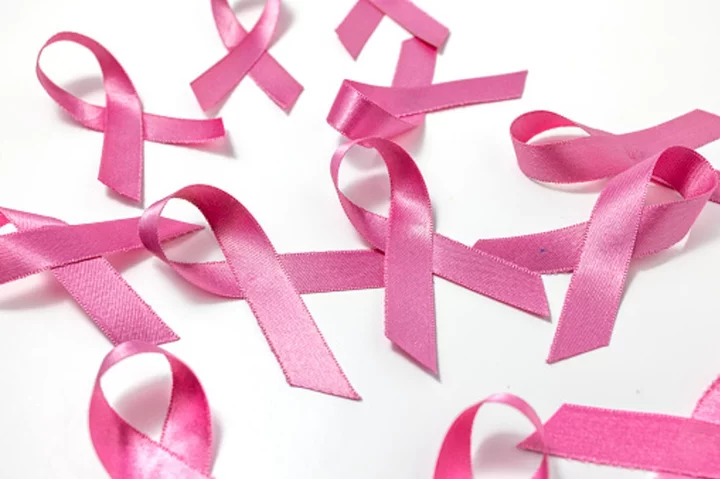
Why October is Breast Cancer Awareness Month - and why we wear pink ribbons
Although people typically associate the month of October with spooky season and the beginning of fall foliage, the month is also known as Breast Cancer Awareness Month. Breast Cancer Awareness Month dates back to 1985, when the American Cancer Society picked one week in October and teamed up with the pharmaceutical division of Imperial Chemical Industries – now part of AstraZeneca, which has worked to develop medicines for breast cancer treatment. The initial goal for the week-long event was to raise awareness towards breast cancer screenings and mammograms. First Lady Betty Ford was diagnosed with breast cancer when her husband, former US president Gerald Ford, was in office. As a breast cancer survivor, she initially helped bring attention to the disease during the week-long event. Over the years, the original week transformed into a month-long event. The goals for Breast Cancer Awareness Month have also evolved over time, such as supporting people diagnosed with breast cancer and metastatic breast cancer, educating people about breast cancer risk factors, stressing the importance of regular screening starting at age 40, and fundraising for breast cancer research. However, the well-known pink ribbon associated with Breast Cancer Awareness Month wasn’t introduced until the 1990s. The inspiration for the ribbon dates all the way back to 1979, when the wife of a hostage who had been taken in Iran tied yellow ribbons around the trees in her front yard as a symbol of her desire to see her husband return home safely. Ribbons were also used years later during the AIDS epidemic, when activists made bright red ribbons to represent those affected by AIDS. The AIDS ribbon was made mainstream after the 1991 Tony Awards, when actor Jeremy Irons was the first to publicly wear the pinned ribbon with a singular loop while hosting the awards show. A woman named Charlotte Haley is attributed with the creation of the Breast Cancer Awareness ribbon, as she was the granddaughter, sister, and mother of women who have all battled breast cancer. Initially, she designed the breast cancer ribbon to be peach-coloured instead of pink. With each ribbon, she passed out a card that read: “The National Cancer Institute annual budget is $1.8 billion, only five per cent goes for cancer prevention. Help us wake up our legislators and America by wearing this ribbon.” Because of her success in passing out thousands of ribbons, many corporations and news outlets reached out to Haley asking to showcase her ribbons and the message she was promoting. She declined each offer as she believed they were “too corporate”, but Self magazine was increasingly persistent. The magazine’s lawyer insisted they change the symbol’s colour, and the pink ribbon was born. In October 1992, the pink ribbon first spread across the nation after Estée Lauder displayed the symbol on its cosmetic counters throughout the country. While the iconic shade of pink is normally associated with Breast Cancer Awareness Month, other colours have been introduced, including hot pink for inflammatory breast cancer; teal and pink for hereditary and gynecologic cancers; pink and blue for male breast cancer; and teal, pink, and green for metastatic breast cancer. According to the American Cancer Society, breast cancer is the second most common cancer in women after skin cancer. There is a 13 per cent chance, or one in eight chance, that a woman will develop breast cancer at some point in her lifetime. Although breast cancer is more typically associated with women, it can also occur in men. In 2021, President Joe Biden designated 17 October to 23 October as Men’s Breast Cancer Awareness Week. While Friday the 13th may be a spooky-themed day, don’t forget that it’s also Metastatic Breast Cancer Awareness Day. Read More Elizabeth Hurley issues reminder to women about getting mammograms as she raises awareness about breast cancer Amy Dowden delights Strictly Come Dancing fans in surprise appearance amid breast cancer treatment Jill Biden urges women to get mammograms or other cancer exams during Breast Cancer Awareness Month Elizabeth Hurley issues reminder to women about getting mammograms Sharon and Ozzy Osbourne ‘plan to be euthanised’ if they lose mental abilities Billy Connolly says reports of his ‘demise have been greatly exaggerated’
2023-10-13 06:19
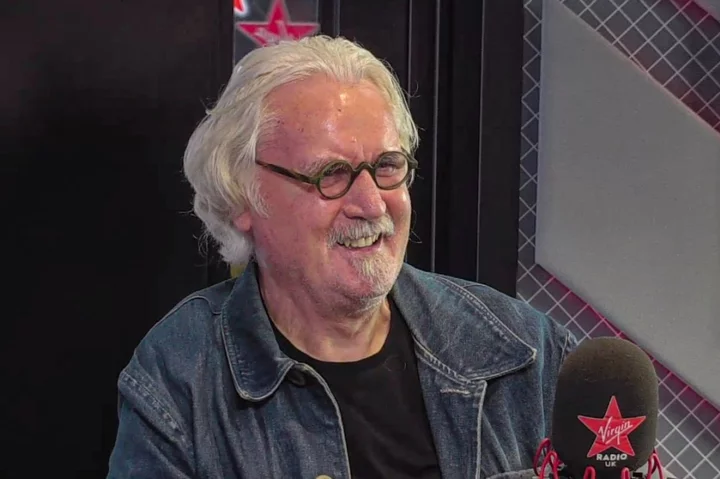
Billy Connolly says reports of his ‘demise have been greatly exaggerated’
Billy Connolly mocks misguided reports of his “demise” in an extract from his new autobiography. The Scottish actor and retired stand-up comedian, nicknamed “The Big Yin”, was diagnosed with Parkinson’s disease in 2013. Parkinson’s is a brain disorder that causes unintended or uncontrollable movements, such as shaking, stiffness, and difficulty with balance and coordination. Often, the disease can become more severe over time. During an interview published in September, it was revealed that Connolly had suffered “a couple of serious falls” and once broke his hip as a result of deteriorating balance. He also expressed having difficulties with walking. Despite these growing physical challenges, the What We Did on Our Holiday star clearly maintains a positive outlook about his health. In his new memoir, Rambling Man: Life on the Road, Connolly clarifies that he doesn’t feel “close to death”. “You see, reports of my recent demise have been greatly exaggerated,” he states in an extract shared with The Telegraph. “There was a week a few years ago where on Monday I got hearing aids, Tuesday I got pills for heartburn, and Wednesday I received news that I had prostate cancer and Parkinson’s disease. But despite all that, I never ever felt close to dying.” Connolly also writes about his feelings of comfort when in a cemetery, and how he reliably makes an effort to attend funerals. He recalls his manager being bewildered by his commitment, telling him: “Billy – even if you haven’t seen someone for 25 years and they die in another country you’ll jump on a plane.” “I just like to see people off,” the comic explains. “It’s important to me. Boys from school. Apprentices from the Clyde. Welders. It’s a bit like a school reunion. Seeing all the people from that place and time – that world I was once part of.” Five years after his diagnosis, Connolly retired from his stand-up career due to the increasing difficulties of the illness, and has previously offered insight into the realities of living with Parkinson’s. Though he said he does not feel close to dying yet, he has spoken with his wife, psychologist Pamela Stephenson Connolly, about the message he’d like on his gravestone when the time comes. He wrote: “I was thinking I’d like: ‘Jesus Christ, is that the time already?’ on mine, but my wife Pamela was shaky about it, so we settled on ‘You’re standing on my balls!’ in tiny wee writing.” Rambling Man: Life on the Road is out now. Read More Billy Connolly says ‘cruel’ Parkinson’s disease has made it difficult to walk Sir Billy Connolly unveils four new drawings for sale Prince William reveals he can’t handle overly spicy food or he’ll ‘start sweating’ Billy Connolly says ‘cruel’ Parkinson’s disease has made it difficult to walk How to get rid of bedbugs: Signs and symptoms amid threat of UK invasion Dawn O’Porter: ‘I fantasise about the other side of menopause’
2023-10-12 17:49
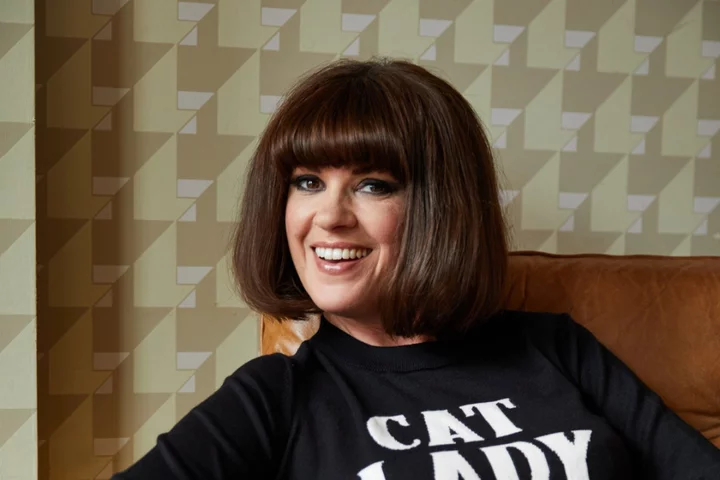
Dawn O’Porter: ‘I fantasise about the other side of menopause’
Knowing her limits is a “revelation”, says Dawn O’Porter, something she discovered in her mid-40s. For the former TV presenter and author – her latest book, Cat Lady, which was released in October last year – it’s something she’s had to learn. “I love drinking booze and eating really indulgent food, but I’m also really into health stuff as well,” she says. “I’m one of those people that’s really good – if I go to a party and it gets to 10:30pm [and] I’m not really feeling the booze, I just stop drinking – but I can stay out until two in the morning. I’m able to turn it off, and I don’t overindulge when I’m done – which I think is a real mid-40s revelation. “I know my limits – I go to everything, I do everything, I just stop when I know I’m done.” For O’Porter, 44, who shares two sons, Art, eight, and Valentine, six, with actor husband Chris O’Dowd, becoming a mother helped shift her perspective. “Since I’ve had kids, I know that I’m going to get woken up at six o’clock in the morning – you’ve got to make better decisions,” she says. “Like everybody, if I don’t do the work, I don’t get paid – and I don’t have the luxury where I can’t get paid. I have to be at my desk at 10 o’clock in the morning, and before I’ve got to my desk I’ve had to feed two humans, get them dressed, get them to school, walk two dogs, pull the house together and do all this stuff. “I know now that when I go on a big night out – which I do all the time, I love it – the next day is a write-off, so I can only do that once a week. It used to be three or four times a week, and it didn’t affect me in the same way. “I definitely feel like it’s a great thing to get to an age when you know what you can and can’t handle.” This “willpower” is something she admits she “didn’t used to have”. But dedicating time to her wellbeing is important, as being in your 40s is a “weird time”, she admits. “You know what’s coming – menopause is coming. What are we in for? So I feel like I’m going to do my very best for myself until that happens. It might be fine, it might not – I don’t know.” O’Porter adds: “It feels nice to go into it in the best health you can be. I’m not an exercise person – I get really into Pilates for two months and never do it again – so I’m consistent about healthy food and skincare and all that kind of stuff.” She’s reminded of a speech Kristin Scott Thomas makes about menopause in the BBC black comedy Fleabag, where she says: “It is horrendous, but then it’s magnificent – something to look forward to.” O’Porter adds: “As someone who has had cramps and really suffered for so much of my life, I fantasise about the other side of menopause – it’s like this giant mountain you have to get over. “I might smooth through it and not even know it’s happening, or I might be one of those people who has a very difficult time – I’ve got no idea. I just want to feel good when I go into it. “I do feel like there’s this freedom on the other side – I’ll be rid of all the things that have weighed me down physically for so many years, and be pain-free and happy.” A healthy diet is particularly important for O’Porter, who can’t eat gluten because it causes her “quite severe pain”. She says: “I have to think about food a lot more than people who can eat gluten – I really read packages and all that stuff. And I’m obsessed with my skin – I really try and eat food that’s really, really good for my skin.” Other aspects of her self-care routine include taking supplements (“If somebody says it stimulates collagen, I’ll literally buy 10 of it!”), taking Epsom salt baths and carving out the time to read before bed. “I think that’s really looking after myself, [so] when I have nights where I’m completely hedonistic and start drinking at 10 o’clock in the morning and don’t get home until four, that’s fine. Because I take care of myself the rest of the time, I think my face survives the hangovers and the dehydration.” After 15 years living in America, in June this year, O’Porter and her family moved from Los Angeles to London – and she couldn’t be happier to be back. “There’s quite a transient vibe to LA, because very few people are born and bred there – there are some, obviously, but most people have come out for some sort of work experience they’re having. They either stay or go, and there’s this constant movement of people. “It was hard to imagine getting older there and settling, there was always this feeling of no matter who we’ve got in our lives, they will come and go – and that unsettled me in the last few years.” Back in London, “Everything I do is an investment in the future of living here, which feels really lovely,” O’Porter enthuses. “Every relationship I make – all my girlfriends or my mum friends – everybody is here for keeps.” She’s particularly looking forward to spending Christmas on this side of the world. “I started planning Christmas months ago – where we’re going to be, what we’re going to do, because ultimately, I love hosting it. I love doing the whole thing myself.” She’s hoping to host this year, and foresees absolutely no festive pressures, saying: “It doesn’t stress me out at all, I’d say it’s me at my absolute best. “I cook like Christmas Day on every Sunday for lots of people, I love it so much. I get really into it and I start drinking about 10 in the morning – it makes it more fun – we play Christmas songs and get the wine going early and cook all day.” Plus O’Porter – who is offering shopping consultations in collaboration with Etsy ahead of Christmas – is extremely easy to buy for. “I’m really easy. I genuinely say this from the bottom of my heart – go on Etsy and put in ‘cat’ and you can get me anything, any handmade anything – if it’s got my name on it, even better, with a cat on it. I am so simple.” To find thoughtful gifts for loved ones this Christmas and beyond, head to etsy.com/uk. Read More Everything you need to know about bedbugs as increase in numbers is predicted PE ‘enjoyment gap’ widens for girls: Why it matters and how we can help The psychology of Big Brother: How to survive in the house How to support someone coming out in their 30s and beyond Israel-Hamas conflict: How to talk to teenagers about distressing news stories Autumn décor ideas for a seasonal refresh
2023-10-12 14:19

Steve Rider tells men to ‘recognise your vulnerability’ after prostate cancer diagnosis
Sports commentator Steve Rider has shared a message encouraging men to be conscious of their health after his prostate cancer diagnosis. Rider, 73, was told he had the disease last month after a biopsy. The former Grandstand and Sportsnight presenter will undergo surgery to treat it this weekend. Ahead of the operation, Rider shared some insight into his journey to diagnosis, which began when a friend was diagnosed during a routine health check. “He had a scan which showed some alarming things going on with the prostate and within a month he had the full operation and that woke everybody up because he had no symptoms and very fit guy, and roughly our age,” Rider told the PA news agency. After initially testing, Rider’s readings for cancer were “not that high”, so he’d planned not to take further action. His wife, Jane, urged him to have further tests, and a biopsy was taken. He continued: “I thought the worst that can happen is that I’m going to be monitored for the next six months or so and we got the results of the biopsy the next day and they said, ‘No, you come in as soon as you can, we’re going to operate.’” Rider said his diagnosis was aided by his friends having open conversations and his wife encouraging him to get further tested. “We do tend to treat these things a little bit like getting your eyes tested or ears done, you can put it off and maybe think ‘Well, I’ll wait till the symptoms come’. “Symptoms don’t come and when they do, it is probably too late.” He added: “The message is to recognise your vulnerability, especially with age and family history and so on. And if you do feel that you fall into those categories, then get yourself checked.” According to the charity Prostate Cancer UK, 144 men are diagnosed across the country each day – more than 52,000 per year. Rider’s former BBC colleague Bill Turnbull died in August 2022, nearly five years after being diagnosed. After sharing his diagnosis publicly in March 2018, Turnbull detailed his treatment in a Channel 4 documentary called Staying Alive. Speaking about the late broadcaster, Rider said: “The great thing about Bill was that he wanted to turn his misfortune into an information campaign which would save hundreds of others and I’m sure that probably hundreds and thousands of men have stepped back from a really serious cancer because of the attention that Bill Turnbull brought to early diagnosis and testing. “And apart from that, he was a lovely, lovely guy.” Rider found out that he had cancer the day after taking part in sports presenter Jeff Stelling’s charity Football March in Turnbull’s honour. Prostate Cancer UK has said the disease affects one in eight men in the UK and that more than 12,000 men die every year from the condition. They advise that if a man is over the age of 50, Black, or has a family history of prostate cancer that he may want to speak to a GP as these are higher risk factors. To find out more about your prostate cancer risk, or that of your partner, father or friend, you can visit Prostate Cancer UK’s website – prostatecanceruk.org/risk-checker – and try the 30-second online risk checker. Additional reporting by PA Read More Cancer cases in young people ‘are rising’ – the warning signs to look out for Jeff Stelling leads hundreds to complete Wembley to Wycombe walk in honour of Bill Turnbull Duran Duran’s Andy Taylor claims he was ‘visited by angel’ after starting new cancer treatment The psychology of Big Brother: How to survive in the house Sports culture is ‘intimidating’ and putting people off working out Israel-Hamas conflict: How to talk to teenagers about distressing news stories
2023-10-11 17:47
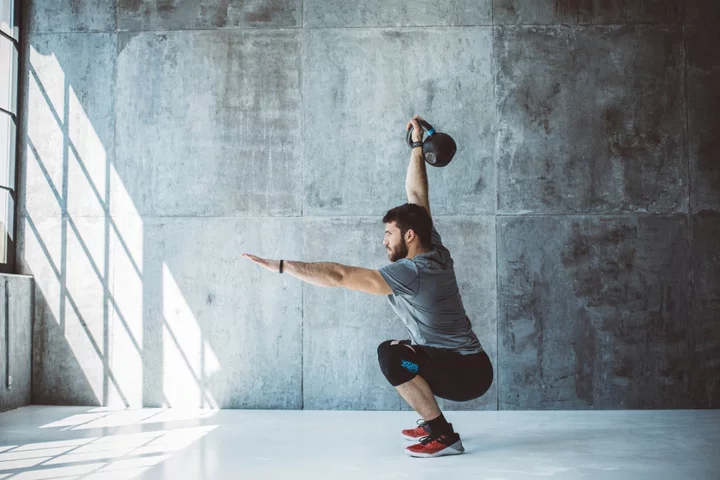
Sports culture is ‘intimidating’ and putting people off working out, study finds
Intimidating sports culture is putting millions off working out – as many are feeling alienated by the exercise industry. A poll of 2,000 adults who don’t exercise found 68 per cent feel too embarrassed to go to the gym because they don’t fit the mould of the “typical” gym goer. More than three-quarters (78 per cent) don’t find sports adverts motivating and 33 per cent say adverts actually put them off working out. However, 55 per cent would be more likely to exercise if they saw everyday people in sports adverts. And 20 per cent would be more inspired to do something active if there were more realistic expectations set by the industry. A further 29 per cent say sports brands aren’t relatable to them, and a quarter think exercise culture is intimidating. While 49 per cent wish they had more confidence to exercise. The research was commissioned by ASICS as part of its ‘New Personal Best’ campaign, which is calling out performance-obsessed exercise culture in partnership with mental health charity Mind. Gary Raucher, European vice president for the sportswear brand, said: “The sports industry has been telling us for years that the only thing that matters is a faster time, a longer distance, a higher score, and more reps. “Although it’s aimed at motivating people, our research shows it’s having the reverse effect and instead creates an intimidating culture that’s putting people off exercise – something we’re committed to change.” As part of the research, survey respondents were shown a series of marketing images from sportswear and athletic brands and asked to comment on how the pictures made them feel. Just over one in 10 (12 per cent) said the images made them feel ‘inferior’, 13 per cent felt intimidated and for seven per cent, the images even made them feel depressed. It was found 16 per cent typically come across these types of images on social media, with 42 per cent admitting seeing boastful exercise posts makes them feel like a failure – even before they’ve started exercising. Hayley Jarvis, head of physical activity at Mind, added: “For people who don’t exercise, taking that first step can be daunting, especially if they’re also experiencing a mental health problem. “When you add the pressure of performance so often seen in sports marketing or on social media, for some it can feel impossible to get started as they don’t feel like they’re ‘good enough’. “Getting active can play a vital role in helping us stay and live well with mental health problems.” The survey, which was conducted via OnePoll.com, also found 23 per cent of non-exercisers feel too embarrassed to start now, and nearly one in five (18 per cent) worry people would judge them as they are too unfit. Over three quarters (77 per cent) admitted they are aware of the mental health benefits of exercise. But despite 61 per cent saying they have either personally experienced a mental health problem or know someone who has, it is still not motivation enough to get them moving. Mental health activist and TV personality Dr Alex George, who is supporting the ASICS campaign, said: “As someone who is passionate about the benefits of exercise on mental health, it’s upsetting but unsurprising that people feel excluded and alienated by the sports industry. “I too have felt intimidated and insecure after comparing my performance and results to others. “People need to know that regardless of the type of exercise they do, or the times or distances they achieve, any movement benefits mental health and is something that should be celebrated.” The ‘New Personal Best’ campaign features everyday people and is encouraging them to share their own ‘personal best’ images on social media using the hashtag #NewPersonalBest on World Mental Health Day, 10th October. One of which is Tom Durnin, whose inspirational story caught the sports brand’s attention when he finished in last place at the London Marathon 2023. He said: “For me, it was all about crossing that finish line no matter how long it took me. I run purely because it makes me feel good, I don’t worry about my time or being the slowest. “I never thought I’d ever be the face of a sports campaign but I’m honoured to be partnering with ASICS to encourage more people to move for their mental health. “If my story can inspire at least one person to take the first step that’s all I could ask for.” Read More Brits reveal advice they would give their younger selves - including investing in property Girls in UK have much lower confidence than male peers, study finds Average person completes 90 online tasks a day Israel-Hamas conflict: How to talk to teenagers about distressing news stories How to get rid of bedbugs: Signs and symptoms amid threat of UK invasion How to support someone coming out in their 30s and beyond
2023-10-11 16:49

Israel-Hamas conflict: How to talk to teenagers about distressing news stories
With all the access teenagers today have to the internet and social media, they may see more distressing news stories than even their parents. Palestinian militant group Hamas – deemed a terrorist group by the UK Government – invaded Israel on Saturday from Gaza, with rocket attacks by air as well as military in boats. Since then, Israel has sealed the Hamas-ruled Gaza Strip off from food, fuel, medicine and other supplies, while launching retaliatory air strikes on the territory, which is home to 2.3 million people. The most recent numbers suggest 900 people have been killed in Israel, 700 in the Gaza territory and the West Bank, and many hostages have been taken. Hamas has pledged to kill captured Israeli hostages if attacks target civilians in Gaza. The conflict has sparked protests by pro-Palastine and pro-Israel groups in the UK and prompted political division on social media. Teenagers are likely to be exposed to a lot of the news, internet discussion and perhaps distressing images of conflict. So how should parents approach this? Talk about it at home Dr Jeri Tikare, clinical psychologist at Kooth, a digital mental health platform, believes parents should be as truthful as they can with their teenagers. “This means that it is important for us to not to hide things away from them. It is better for them to hear it from us (their people of safety) as opposed to reading it or hearing it from others,” he says. “Also bearing in mind the curious nature of the mind. It is inevitable that for things that they do not understand, they might research and look for answers. “It can be helpful if they get their information from a reliable source which can feel contained and reassuring. But share information at a level that is developmentally right and just enough to help the young person feel contained and safe.” Check yourself As the parent, learn the basics of what is going in the conflict yourself from reputable sources so you can have balanced, informed conversations with your child. “It can also be useful to be aware of our own reactions as parents or primary caregivers,” he says. “One of the ways young people learn and develop is via observing and then modelling adult behaviour. Hence, they can pick up anxieties or worries displayed by parents.” Validate and normalise expressing emotion If your teen is particularly affected by distressing news stories about war and conflict, Tikare encourages parents to give their teenagers the opportunity to express how they are feeling in different ways – such as writing, drawing, stories, songs, and things that feel helpful for the young person. “Some find a feelings box helpful,” he adds. “It might also be helpful to introduce them to some simple relaxation techniques such as taking three deep, slow breaths, breathing in for a count of three and out for three.” Be there for them Giving your teenager the space, time and encouragement to open up about how they feel on any subject – world news or otherwise – is key. “I know that life can be hard, busy and sometimes young people are aware of this and might not want to disturb you,” Tikare says. “Therefore, it might be helpful to make a conscious effort to let them know that you are mindful of how difficult it can be and reassure them that you are available to talk about things. “Giving them extra love and attention at this time can be helpful, especially at difficult times like this.” Discuss social media Tikare acknowledges that television, social media and other platforms “can be very distressing and exacerbating” for teenagers. But you may not be able to prise your child away from posting on their social media accounts altogether. “It would depend on the motivation behind posting and where they are posting,” Tikare says. “Posting about the feelings experienced around the conflict in a supportive and possibly moderated space, with people sharing similar feelings associated with the conflict, can help normalise the experience and leave them feeling less alone. “On the other hand, it could also expose them to content and comments that could potentially trigger distress.” So be sure to make them aware of the content they may come across online. Read More How to support someone coming out in their 30s and beyond Autumn décor ideas for a seasonal refresh Why you shouldn’t tidy your garden too much in autumn World Mental Health Day: 5 ways to beat anxiety and change your life Alternative veg to grow for next season How to spot if your child is struggling with their mental health – and what to do next
2023-10-11 14:29
